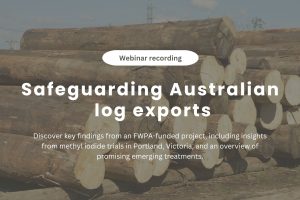Presented by Tim Wardlaw, Forestry Tasmania, Wednesday 19th March, 2014.
Warra was formally established as long-term research site in 1995 as a place to foster long-term and multi-disciplinary research into the ecology and management of wet eucalypt forests. The establishment of Warra was unquestionably successful in fostering research: more than 300 publications and reports have been generated from research done at Warra; it has contributed to the experimental studies of more than 50 graduate students from Australian and overseas universities; it has hosted five Australian Research Council post-graduate studies; and, has hosted one international conference.
A key strength of research done at Warra has been the strong linkage to important questions about forest management. As a result, knowledge generated from Warra has been instrumental in underpinning changes in forest management that strengthen the environmental credentials of wood production in native forests. The next challenge for Warra is convert this scientific capital into social capital. The environment, communities and market-place have much to gain if we are successful in this quest.
Presenter:
Dr Tim Wardlaw is Principal Scientist of the Ecosystem Services group of Forestry Tasmania’s Research and Development Branch. For the past 13 years Tim has overseen Forestry Tasmania’s conservation biology research program, much of which has been centred on research done at the Warra Long-term Ecological Research Site. Over the past 5 years Tim has driven successful efforts to have Warra included in several facilities of the Terrestrial Ecosystem Research Network. This culminated in the commissioning of an 80-m carbon flux tower in early 2013 and Warra’s inclusion as one of ten member sites of the Australian Supersite Network.



